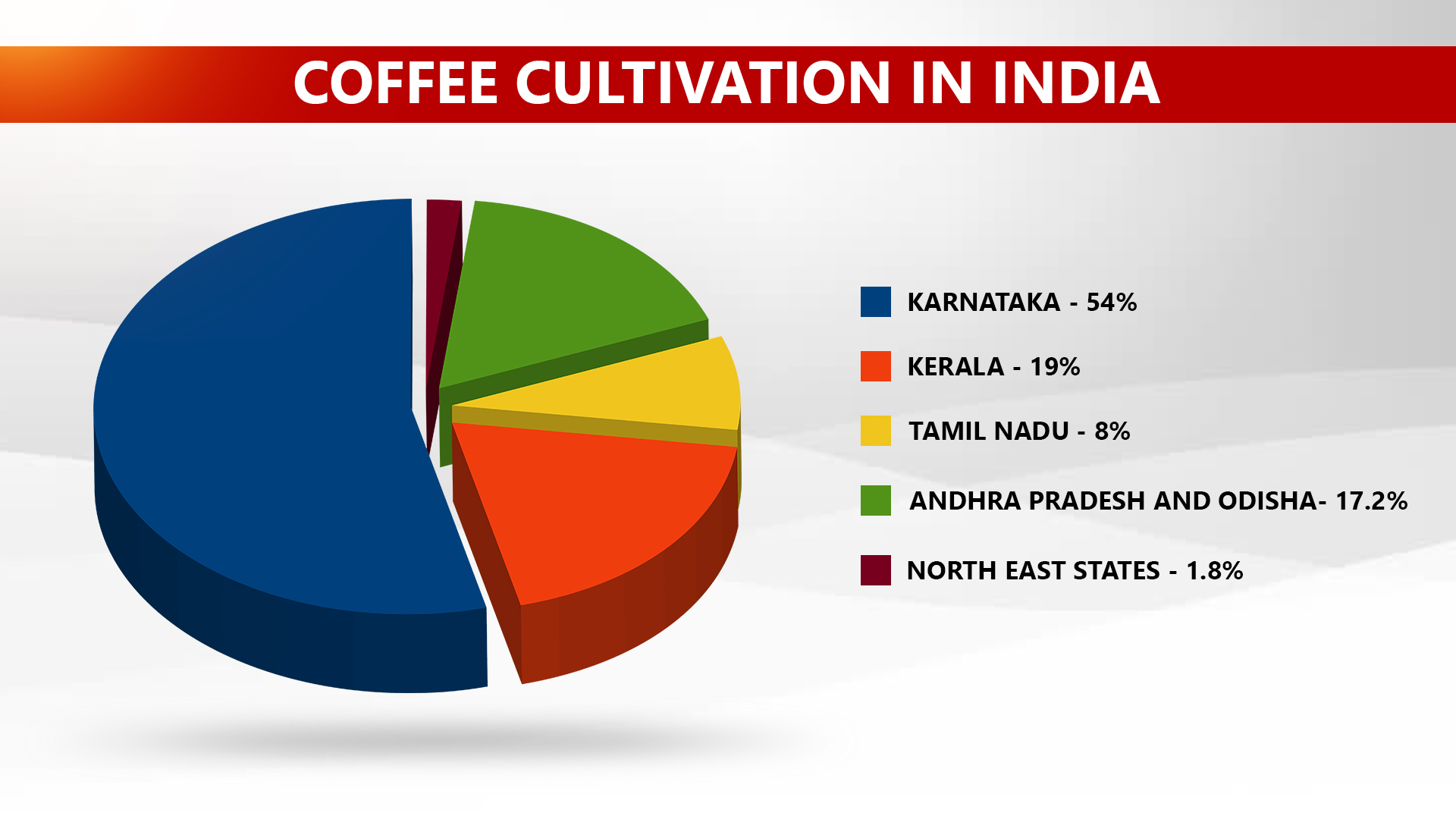New Delhi: The Department for Promotion of Industry and Internal Trade, Ministry of Commerce and Industry, has recently awarded Geographical Indication (GI) to coffee varieties grown in Coorg, Wayanaad, Chikmagalur, Araku and Bababudangiris.
Among the five varieties, three are from Karnataka - Chikmagalur Arabica, Bababudangiris Arabica coffee and Chikmagalur Arabica, one belongs to Kerala - Wayanaad Robusta coffee and one is from Andhra Odisha region – Araku Valley Arabica variety.
While Wayanaad is cultivated in the eastern part of Kerala, Araku variety is seen in the plantations in the hilly tracks of Visakhapatnam district of Andhra Pradesh and Odisha region at an elevation of 900-1100 mts mean sea level.
Read more:Natural gas prices to rise by 10%
The coffee produce of Araku, by the tribals, follows an organic approach in which they emphasise management practices involving substantial use of organic manures, green manuring and organic pest management practices.
Bababudangiris Arabica coffee is grown specifically in the central portion of Chikmagalur district in Karnataka, which is also known as the birthplace of coffee in India. Selectively hand-picked and processed by natural fermentation, the cup exhibits full body, acidity, mild flavour and striking aroma with a note of chocolate. Another variety of coffee, Chikmagalur Arabica variety is also grown in the same region of the State.
Coorg Arabica coffee is grown specifically in the region of Kodagu district in Karnataka.
The Monsooned Malabar Robusta Coffee, a unique specialty coffee from India, was given GI certification earlier.
Coffee production in India
In India, coffee is cultivated in about 4.54 lakh hectares by 3.66 lakh coffee farmers of which 98% are small farmers. Coffee cultivation is mainly done in the Southern States of India as shown below.

India is the only country in the world where the entire coffee cultivation is grown under shade, hand-picked and sun dried. India produces some of the best coffee in the world, grown by tribal farmers in the Western and Eastern Ghats, which are the two major bio-diversity hotspots in the world. Indian coffee is highly valued in the world market and sold as premium coffee in Europe.
What is a geographical indication (GI)?
A GI is a sign used on products that have a specific geographical origin and possess qualities or a reputation that are due to that origin. Since the qualities depend on the geographical place of production, there is a clear link between the product and its original place of production.
Geographical indications are typically used for agricultural products, foodstuffs, wine and spirit drinks, handicrafts, and industrial products. Geographical indications are generally protected for renewable ten-year periods.
Who can use a protected geographical indication?
The right to use a protected geographical indication belongs to producers in the geographical area defined, who comply with the specific conditions of production for the product.
How GI tag will help coffee growers?
Let us take the example of Araku Coffee growers. With GI registration now, Araku coffee producers can exclude use of the term "Araku Valley Arabica" for coffee not grown in their coffee plantations or not produced according to the standards set out in the code of practice for the geographical indication.
The recognition and protection that comes with GI certification will allow the coffee producers of India to invest in maintaining the specific qualities of the coffee grown in that particular region. It will also enhance the visibility of Indian coffee in the world and allow growers to get maximum price for their premium coffee.



